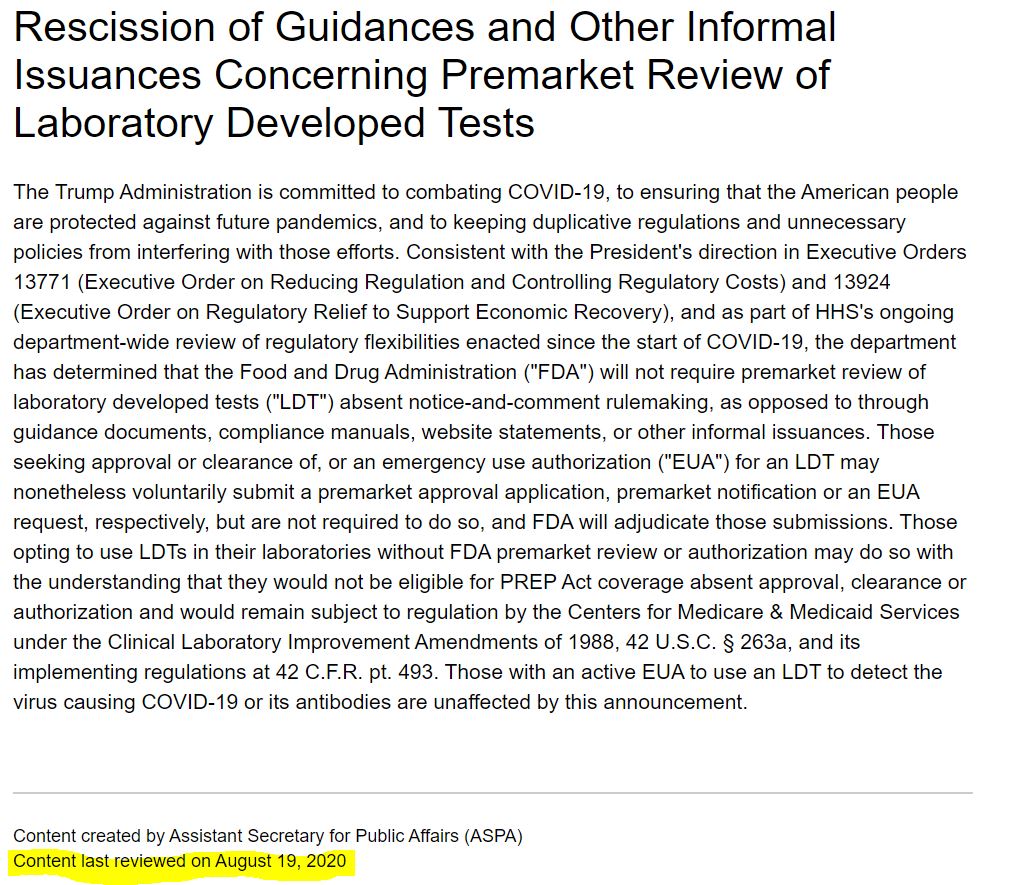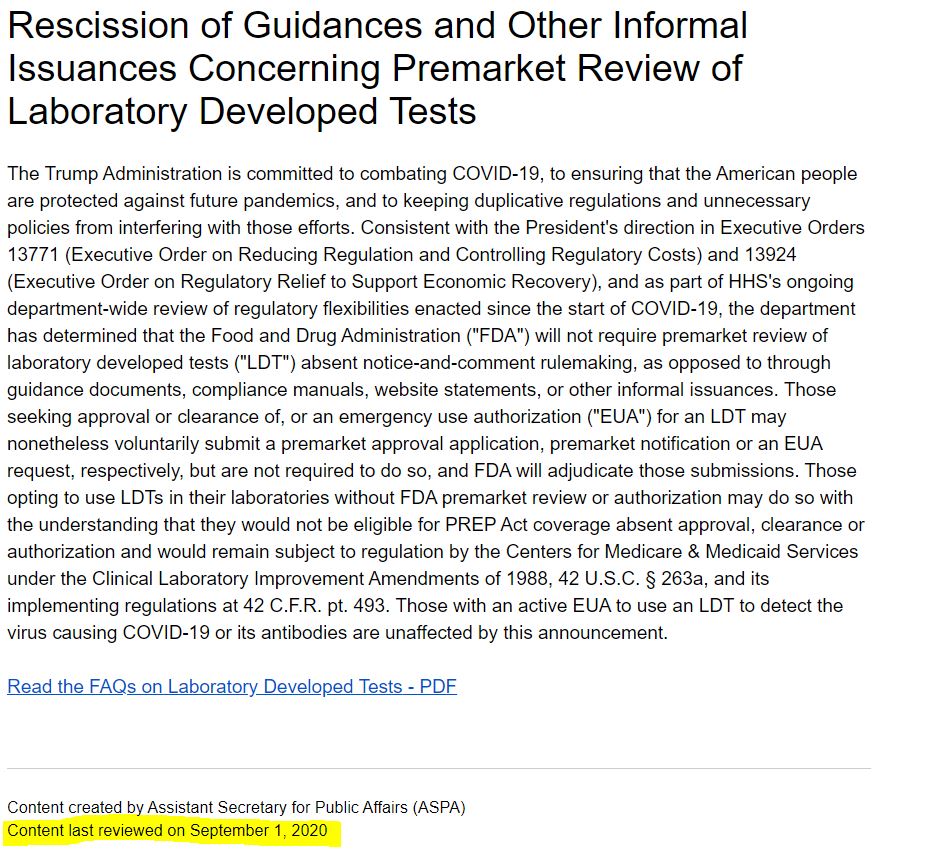FDA Commissioner, Personalized Medicine Proponent @ScottGottliebMD Resigns genomeweb.com/molecular-diag…
The agency under @SGottliebFDA had a productive 2018 in terms of #personalizedmedicine approvals, diagnostics guidelines, recognition of the 1st public variant database #ClinVar, and efforts to incorporate real-world evidence in reviews genomeweb.com/molecular-diag…
@SGottliebFDA's FDA even took on the contentious issue of regulation of lab-developed tests and provided input on a draft bill #VALIDAct that would bring all tests under one regulatory pathway, the centerpiece of which would be a precertification program genomeweb.com/molecular-diag…
• • •
Missing some Tweet in this thread? You can try to
force a refresh









